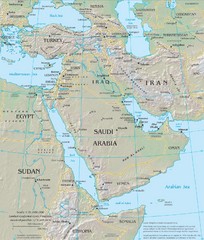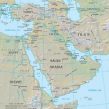Al-Qaeda Leaders in the Arabian Peninsula Speak Out
Publication: Terrorism Focus Volume: 6 Issue: 3
By:

Al-Qaeda Leaders in the Arabian Peninsula Speak Out
Jihadi forum members hailed a series of statements by leaders of al-Qaeda in the Arabian Peninsula (AQAP), gathered under the title “From Here We Start and in Aqsa [Jerusalem] We Meet” (hanein.info, January 24). The statements, originating in Yemen, came after a long silence and were posted in many jihadi websites. Of particular note were the messages from two ex-Guantanamo Bay prisoners, who have now taken leadership positions in AQAP.
In the first statement, the Deputy General of AQAP, Shaykh Abu Sufyan al-Azdi Saed al-Shahri, formerly prisoner number 372 in Guantanamo, said that they will continue the struggle started by their martyred jihadis until the establishment of an Islamic caliphate. He pledged allegiance to Osama Bin Laden and Ayman al-Zawahiri assuring them that imprisonment only strengthened his resolve to maintain his jihad against traitors and apostates:
In the second statement, al-Qaeda’s amir in the Arabian Peninsula, the Yemeni Abu Basir Nasser al-Wahayshi, welcomed the opportunity to reunite with Saudi ex-Afghan jihadi comrades in Yemen to resume endeavors to set up an Islamic caliphate: “We are uniting our efforts to cleanse the Arabian Peninsula from the occupiers’ profanity and their treacherous agents, and then march towards our brothers in Gaza and Palestine… Rejoice people of Bait al-Maqdis [Jerusalem], the people of the victorious confession are coming…” Al-Wahayshi ends his statement with an ultimatum to the Arab rulers to assist jihadis in infiltrating and attacking Israel because Arab countries bordering Israel currently keep tight control over the borders to prevent such infiltration. If routes to Israel are not opened by the Arab states, al-Wahayshi promises jihadis will topple their regimes.
In the third statement, the military leader of AQAP, Shaykh Abu Hureira Qasm al-Rimi (a.k.a. Abu Hureira al-Sana’ani), directly addressed the war in Gaza by promising to come to the rescue of Gazans and accusing Arab regimes in Amman, Cairo, and Damascus of collaboration with the enemy by imposing a blockade on the Gaza strip. Al-Rimi ended his statement with a provocative message directed to Hassan Nasrallah, Secretary General of Hezollah in Lebanon:
In another interview with the jihadi electronic magazine Sada al- Malahim entitled “We Support Gaza by Amputating the Cross’s Aid in the Arab Peninsula,” AQAP Amir Abu Basir al-Wahayshi announced the formation of the Islamic Emirate of Yemen, based on mujahideen from Saudi Arabia who pledged allegiance to him as Amir and al-Shahri as his deputy. On the war in Gaza, al-Wahayshi said the group had opened up camps to train and send mujahideen to liberate Palestine. “The plan is to cut off Saudi oil support for the crusaders’ campaign. Yemen will aid all Muslims anywhere” (hanein.org, January 20).
As a consequence of the war on terrorism, al-Qaeda was forced to decentralize its formations and cells. The Yemeni-Saudi al-Qaeda alliance described by al-Wahayshi and others could be considered a partial return to a centralized strategy. Elements of Yemen’s impoverished and tribal-based society might benefit financially from offering Saudi Arabia’s al-Qaeda safe haven as well as procuring arms and minding al-Qaeda’s weapons caches. Yemen’s mujahideen could also benefit from the operational expertise of Saudi Arabia’s al-Qaeda group, similar to the operational assistance offered to tribal militants in Afghanistan and Pakistan.




